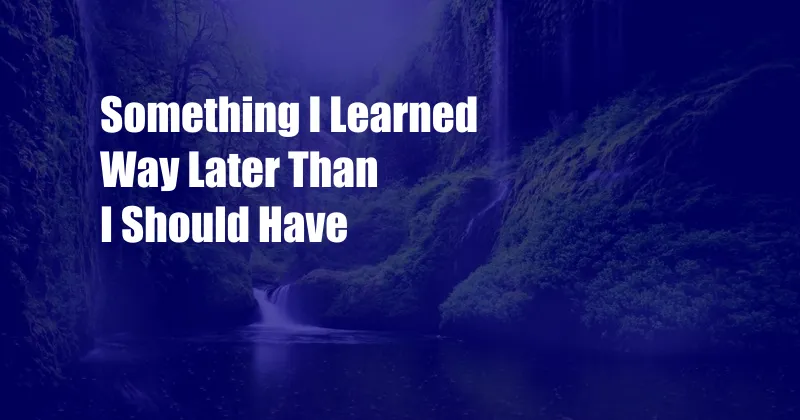
Something I Learned Way Later Than I Should Have
Growing up as a child, you tend to have a set of beliefs that you follow, whether they are taught to you directly or something you have learned from your environment and the people around you. Beliefs are like invisible rules that we live by and help us make sense of the world, influencing our thoughts, actions, and decisions.
My journey of unlearning certain limiting beliefs started when I was in my late teens. I realized that some of the beliefs I had accepted as truths were holding me back from reaching my full potential.
The Importance of Questioning Beliefs
It’s essential to question the beliefs you hold, especially if they limit your growth or happiness. Beliefs can come from many sources, such as family, friends, culture, society, or even personal experiences. Some beliefs serve us well, while others may not. It’s important to be mindful of the beliefs that we hold and to question them periodically.
Questioning beliefs allows us to examine their validity and determine if they still align with our values and goals. It also helps us to become more self-aware and to identify any beliefs that may be holding us back. By challenging our beliefs, we can open ourselves up to new possibilities and experiences.
Unlearning Limiting Beliefs
Unlearning limiting beliefs can be a challenging but rewarding process. It requires self-reflection, honesty, and a willingness to change. Here are a few tips that can help you unlearn limiting beliefs:
- Identify your limiting beliefs: Pay attention to the thoughts and beliefs that you have about yourself, others, and the world. Identify any beliefs that are negative or self-limiting.
- Challenge your beliefs: Once you have identified your limiting beliefs, question them. Ask yourself if there is any evidence to support these beliefs. Are they based on facts or assumptions? Are they helpful or harmful?
- Reframe your beliefs: If you find that your limiting beliefs are not supported by evidence or are harmful, reframe them into more positive and empowering beliefs. For example, instead of believing “I’m not good enough,” you could reframe it to “I am capable and worthy.”
- Practice positive self-talk: Replace negative self-talk with positive affirmations. Speak kindly to yourself and remind yourself of your strengths and abilities.
- Seek support: If you are struggling to unlearn limiting beliefs on your own, consider seeking support from a therapist or counselor. They can provide guidance and support throughout the process.
Benefits of Unlearning Limiting Beliefs
Unlearning limiting beliefs can have numerous benefits for your personal growth and well-being. Here are a few benefits of unlearning limiting beliefs:
- Increased self-confidence: When you unlearn limiting beliefs, you will have a more positive view of yourself and your abilities. This can lead to increased self-confidence and a greater belief in yourself.
- Improved mental health: Limiting beliefs can contribute to anxiety, depression, and other mental health issues. By unlearning these beliefs, you can improve your mental health and well-being.
- Greater success: Limiting beliefs can hold you back from achieving your goals. By unlearning these beliefs, you can open yourself up to new possibilities and experiences. This can lead to greater success in all areas of your life.
- More fulfilling relationships: Limiting beliefs can also affect your relationships with others. By unlearning these beliefs, you can build more fulfilling and healthy relationships.
- A more positive outlook on life: When you unlearn limiting beliefs, you will have a more positive outlook on life. You will be more likely to see the possibilities and opportunities that life has to offer.
FAQ on Unlearning Limiting Beliefs
Q: How do I know if I have limiting beliefs?
A: Limiting beliefs are often negative or self-limiting thoughts that you have about yourself, others, or the world. They can be difficult to identify because they are often subconscious. However, there are a few signs that you may have limiting beliefs, such as:
- You often feel like you are not good enough.
- You believe that you cannot achieve your goals.
- You are afraid to take risks.
- You have a negative self-image.
- You believe that the world is a dangerous place.
Q: How can I challenge my limiting beliefs?
A: There are a few ways to challenge your limiting beliefs. One way is to ask yourself if there is any evidence to support these beliefs. Are they based on facts or assumptions? Are they helpful or harmful? Another way to challenge your limiting beliefs is to reframe them into more positive and empowering beliefs. For example, instead of believing “I’m not good enough,” you could reframe it to “I am capable and worthy.”
Conclusion
Unlearning limiting beliefs is a powerful process that can lead to personal growth, improved mental health, and greater success. It requires self-reflection, honesty, and a willingness to change. By questioning our beliefs, challenging them, and reframing them, we can open ourselves up to new possibilities and experiences. If you are ready to make a change in your life, start by unlearning your limiting beliefs.
Are you interested in learning more about the topic of unlearning limiting beliefs? Share your thoughts and experiences in the comments section below.